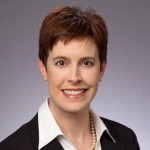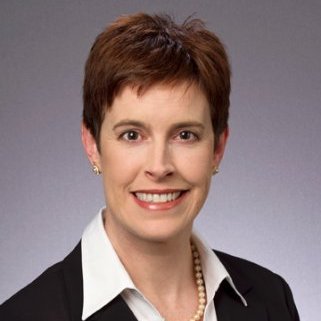SPM member MaryAnne Sterling is Co-founder of tech startup Connected Health Resources – she’s a healthcare transformer and person-centered care activist whose motto is: no family caregiver left behind. A recent experience, what she calls her “go fund yourself” moment, is captured in this guest post.

MaryAnne Sterling
During the Holidays, I carry on a time-honored tradition in my family: baking cookies. Over the years, I’ve gotten into the habit of double-checking my recipe once all of the ingredients are in, to make sure I haven’t forgotten anything. A single missing ingredient will result in disastrous cookies. My husband, who knows how meticulous I am, teases me about this – to which I typically respond “old habits die hard”.
I use this same analogy to describe the missing ingredient at healthcare conferences around the country – the patient. And the family caregivers who comprise the backbone of our healthcare system. These critical components of the care team are not even invited to participate in discussions that are about THEM. In fact, a visit to the websites of these events, including those created to tackle the topic of “patient engagement,” reveals a list of distinguished speakers, all with advanced degrees, but few with a patient-level view of a disease or chronic condition.
Imagine a medical conference where doctors aren’t on the agenda. Or a hospital industry symposium with no hospital CEOs delivering a keynote. That’s what the healthcare industry is doing by giving patients the cold shoulder when it comes to attending, and presenting, at its conferences.
It’s like an ad agency that builds a multi-million dollar campaign for a new consumer product … without ever asking a single consumer to test that product. Healthcare has what amounts to a terminal case of “campaign for New Coke” syndrome because it doesn’t ask its customers – patients – if the product they’re selling – healthcare – tastes good. And because they don’t ask, they don’t know that the answer is “tastes AWFUL, what were you THINKING!”
Asking people who’ve been there, done that – patients and family caregivers – to participate in the ongoing industry conversation about value-based care, about precision medicine, about system transformation would actually help make these seismic shifts happen. Which is why the Patients Included movement exists: to make the case to make that happen.
But wait, there’s more.
The cost to attend a healthcare conference and pay for travel, lodging, and meals frequently totals several thousand dollars – untenable for most patients and family caregivers. When conference organizers are asked to provide scholarships or complimentary passes to enable patients to attend, responses have included “have you heard of crowdfunding” (go fund yourself), or “you can volunteer at the event” (you can work at the event to justify your attendance), or “go away, kid, you’re bothering the grownups” (you’re not a worthy attendee).
Let’s be clear. This is not just about money – although we are talking about an industry that rakes in $3 trillion per year in the US alone – it’s about perception. In a time when “partnership” and “collaboration” and “engagement” are the new buzzwords in healthcare, in practice this seems to be reserved for healthcare industry insiders when it comes to healthcare conferences, the very venues where patient engagement and innovation are touted as overarching themes. How can either of these happen without the patient providing boots-on-the-ground perspective?
Historically, these gatherings of “experts” have been largely closed-door affairs reserved for those who work in the healthcare industry, particularly those who worked for large companies willing to pay for them to attend. We need to change that paradigm, for the same reason that we (long ago) gave women the vote, that we gave 18 year olds the right to vote (because they were being drafted to fight wars), and that we (not quite so long ago) defined civil rights clearly as empowerment and enfranchisement for all. The insight to be gleaned from patients and family caregivers is an enormous untapped resource in the search for new models of care delivery, care transition, and new treatments for devastating chronic diseases. They should be welcomed as equals in every meeting, every discussion. Fully enfranchised, full partners. “Precision medicine” will be impossible without this approach.
Although several organizations have stepped up and generously funded a limited number of patient scholarships for conference attendance, they are the exception. Apparently, old habits – and the calcified thinking that underlie them – die hard.
And so it was that I asked for a scholarship so that I could attend a national symposium on a devastating illness that affects the brain, one that impacts 3-out-of-4 of my parents/in-laws. I was told, quite clearly, either “go fund yourself,” or “volunteer to be a greeter”, both of which imply that I am not a valued participant. That will not stop me, though. I will continue to rally my allies and advocates in this disease community, and others, so that never again will a patient or family caregiver feel that she is not valued as an important member of the care team, nor as an important participant in the complex steps to make the journey easier.







The experts who attend these conferences need to pay their way as well. The exception are the speakers and others working at the event.
Most are open to paying attendees with discounts given to organization members and students.
This is a vexing problem, but it’s not all one sided.
Health 2.0 has always let patients in for free (well “FT patients”, not people who tun software companies who also have a condition) and since 2010 has had a special patients led session called Patients 2.0 (led by former SPM exec Director Sarah Krug).
We’ve also had lots of patients on the stage as speakers.
It actually costs something like $500 to feed & water an attendee at a 3 day conference (believe it or not!). So I do understand the reticence though. Events are low margin businesses–having said that the bigger orgs like HIMSS should do much more, or the many events that are offshoots of larger health care orgs with big marketing budgets could do more.
But that doesn’t get over the patient costs of travel/hotel/time off work. I’ve tried to get Foundations, corporations and others to sponsor their attendance–and never got anywhere. So perhaps we can think of some other way of approaching funders?
PS While I like Lucien’s spirit at Patients Included, the charter has changed since the start and now more is demanded of conferences. Live streaming/patient scholarships, etc aren’t free so he’s directly asking conference organizers to pay out scarce cash money to patients to attend (remember what I said about it being a low margin business). Having Patients directly running the conference in the way the charter suggests isn’t practical for our main conference–which is why we carve off a piece (Patients 2.0) for them to run directly.
However Lucien’s original demands were opposed to “no patient IN the program, no patient ON the stage or no patient IN the audience.” When I told him that Health 2.0 had fit that requirement since 2008, he asked me to prove it, and I honestly couldn’t be bothered with the hassle. I also don’t think ANY conference fits the full requirements of the new charter. Even the much fawned over MedicineX charges a fee to patients who don’t get full scholarships. Perhaps it should be changed to “Some Patients Included”
BTW Health 2.0 is also a corporate sponsor of SPM
Health 2.0 what’s the difference between FT patients vs. people who run software companies that have a condition?
I have rheumatoid arthritis and that’s a fulltime condition (lifelong and no cure). But I am also the founder of a bootstrapped startup that focuses on helping people with RA. I’m fine with your rule, but the language is a little demeaning. It’s make me think: I’m not a real patient because I run a digital health startup. I have to manage my RA and my startup everyday.